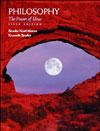| bell hooks | A contemporary American essayist known for, among other things, her critical analysis of types of feminism that fail to do justice to the needs of minority women.
|
 |
 |
 |
| Carlos Astrada | An Argentinean philosopher whose early work in existential phenomenology transitioned into a deeply felt commitment to Marxist politics.
|
 |
 |
 |
| Chaikh Anta Diop | An important Africanist who argued that black Africa was the origin of Egyptian civilization.
|
 |
 |
 |
| Cornel West | An African American scholar active in theology and philosophy, is best known for his analysis of depth dimensions of racial issues.
|
 |
 |
 |
| Desmond Tutu | A South African Anglican bishop who provided significant spiritual and moral leadership in the successful struggle against apartheid.
|
 |
 |
 |
| Ehthnophilosophy | A systematically descriptive method of investigating the philosophical concepts that are important in a culture, especially a culture which is primarily transmitted through unwritten stories, rituals, and statements of belief.
|
 |
 |
 |
| Existentialism | A tradition of twentieth-century philosophy having its roots in the nineteenth century but coming to flower in Europe after World War II; of central concern is the question of how the individual is to find an authentic existence in this world, in which there is no ultimate reason why things happen one way and not another.
|
 |
 |
 |
| Feminism | Movement in support of the view that men and women should have equal social value and status.
|
 |
 |
 |
| Francisco Miro Quesada | A Peruvian philosopher with degrees in mathematics, philosophy, and law, is noted for his work in theory of knowledge and political theory, which avoids metaphysical solutions to problems.
|
 |
 |
 |
| Gender | A person's biological sex as constructed, understood, interpreted, and institutionalized by society.
|
 |
 |
 |
| Leopold Sedar Senghor | Was president of Senegal, a poet, and a philosopher. He formulated the concept of negritude, which asserts an essential uniqueness in African cultures that explains certain historical phenomena and determines an African way of understanding.
|
 |
 |
 |
| Martin Luther King Jr. | Led the African-American drive for equal civil rights. His non-violent methods were influenced by the teachings of Mahatma Gandhi and were embraced by a majority of his constituents.
|
 |
 |
 |
| Mohandas (Mahatma) Gandhi | The twentieth century's greatest theorist of non-violence and the architect of India's independence from Great Britain.
|
 |
 |
 |
| Pan-African philosophy | A cultural categorization of philosophical activity which includes the work of African thinkers and thinkers of African descent wherever they are located.
|
 |
 |
 |
| Rabindranath Tagore | An Indian poet and essayist, winner of the 1913 Nobel Prize for literature, united a sense of Indian tradition with a vision of how India might adapt to the changing conditions of the modern world.
|



 2002 McGraw-Hill Higher Education
2002 McGraw-Hill Higher Education